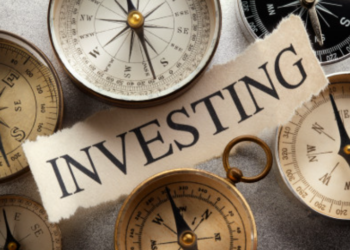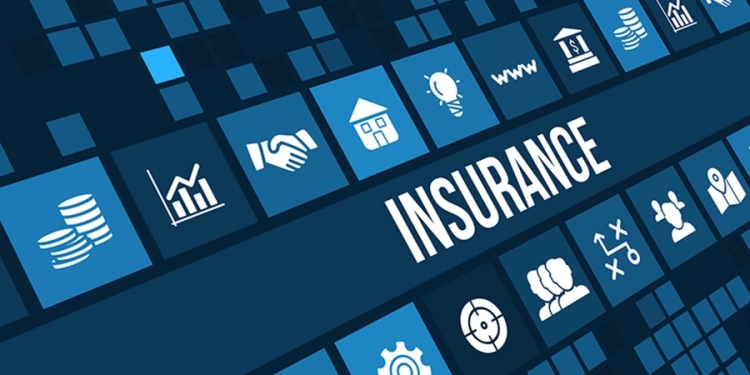A friend of mine recently bought a nice three bedroom duplex in the Lekki Suburbs and invited friends over for his house warming. As most house warming discussions typically go, everyone expressed positive opinions about how beautiful the house is and how wonderful the location was. Some even went as far as saying the House, which cost about ₦40million was a great bargain leaving the chap feeling rather upbeat. Very few off course asked him how he paid for it. It however, happened that the purchase was financed through a combination of debt and equity. Since I loathe debt but someday wish to own my own house, it got me thinking just what it takes to own a house financed via a mortgage.
- Mortgage Originators – These are the players in the real estate market in Nigeria. They are your typical developers, Primary Mortgage Institutions (PMI), Banks and the National Housing Fund. Considering that predominance of new housing projects in Lagos it is more likely for on to buy a house from an originator than any other way. What this therefore tells me is that, to get a House that is built with quality materials and delivered on time would mean sourcing for the right Developer. It also means, I must look out for a PMI that is ready to offer the best deal in terms of Interest rates, tenor, collateral etc.
Agents – Lawyer and Real Estate Agents also play an important role in mitigating any risk that may arise out of the choices you make in 1 above. Agents know the market and are savvy enough to recognise the best deal for me.
Interest Rates – Mortgage rates in Nigeria are crazy and is one primary reason why I hardly advice anyone to take out a mortgage. Interest rates on mortgage loans in Nigeria range from 15% t0 25% per annum excluding fees and other charges. To put this into better context, the Subprime Mortgage Crisis of 5 years ago in the West was because Interest rates on Mortgages suddenly jumped from about 4% to 8% per annum leading to massive defaults. So, in Nigeria if you take a Mortgage Loan of ₦25million at 15%pa interest rate you would have paid ₦37.9million in interest only over the 15year period!! That is even more than the Principal itself!!. The trick here is that at 15% interest rate, it takes a lender approximately 7years to recover the ₦25million it lent to you. That’s about 6 years if the interest rate of 20%. With that sort of interest rate, can anyone honestly afford a mortgage on a steady salary?
Tenor – The time period giving to repay a loan, otherwise known as the Tenor is also a significant consideration in the repayment of a loan. A longer tenor means that you often have lower and favourable cash payouts as your principal and interest repayments are evened out over a longer period of time. However, this is quite deceptive and conceals the real cost to you. Using the example above, had the loan been for 30years and not 15years the interest rate would be ₦88.8million!! So basically, for a house that cost ₦25million, you pay an additional ₦88million in interest over time.
5. Equity – This is the amount you are expected to contribute from your savings in addition to the mortgage when you plan to buy a house. This amount averages between 10%-20% in Western societies but in Nigeria, Mortgage Originators will often require you contribute at least 30%. Basically, the more equity you contribute on the outset the lower the amount you have to borrow from the bank. For me, if I am borrowing at an interest rate of 15% or above injecting an equity of at least 70% for a tenor of 10years is probably the most ideal debt to equity mix you want to have. I will explain why in a future blog post.
- Location– The location of your property is also a very important consideration should you wish to part finance it with a mortgage. Why would anyone borrow money to buy a property in a location that have little potential for economic development? When getting a mortgage the timeline for the economic potential of your location to materialise should always be lower than the tenor of your mortgage. For example, if you buy a house in Epe with a mortgage loan payable over 10years, and property values in Epe double over that same period, then the increase in value of the property would have helped reduce the interest rate you have paid over the years.
Cap Rates – Cap Rates are basically the return on investment a property can generate. In other words if you own a property worth ₦30million that can generate a going rent of ₦3million per annum, then the cap rate for that property is 10%. Cap rates matter in a mortgage and particularly in an economy like Nigeria where interest rates are double digits. You definitely want to make sure the rentable value of your property outweighs the interest payable on it at any given year. Your cap rates should be more than your interest rates otherwise you basically under water.
Percentage of your Income – I have always advised that payment for house rent should be no more than one-third of your take-home pay. In the same vein Mortgage payments should also be no more than one quarter of your take home pay or income. The reason is that when you take a mortgage that grabs 25% of your take home, it is very likely that you must have staked in a lot of equity into the property which in itself is a very good thing. It also helps you free up some cash which you can use for your savings and investments.
State – The Government always have a stake in almost everything we do. It is important to verify Title ownership of Lands from the Lands registry. It is also important to know what applicable fees are for seeking governors consent, registering land titles, land surveys, land use charge etc. You must also consult them to know of the Mortgage Originators have obtained all the requisite approvals and development permits before buying. According to the Land Use Act, the state governments have the legal power and authority over the lands within their states so they are also very important
Taxes – Profit from a sale of property in Nigeria is chargeable for Capital Gains Tax (CGT). There is currently no CGT payable for a sale of a property which is a dwelling house (house that you live in). However, if it is a house that you own and you do not live in it, then you will pay CGT when it is sold. For those looking to obtain a mortgage, your contribution to the National Housing Fund is tax deductible from salary when computing PAYE.



















If you have 70% to contribute as down payment, there really is no need for a mortgage, particularly re the prevailing interest rates.
Absolutely You might as well buy what 70% can afford intend of buying something one can’t afford.
Very useful information but how can we make this better and easier for those of us living abroad?
The information is useful, how can will make it better for the people in Nigeria not abroad,how can they afford it. if you don’t live in Nigeria, save money and develop you property yourself. It is not possible for anyone to pay such interest, they will end up losing it all.
There’s this Product called Diaspora Product Account being offered by Imperial Homes Mortgage Bank formerly GTHomes for people living abroad who want to build houses in Nigeria.
Can you talk more about this
Fair enough, it is thought that people living in Nigeria will usually have their own landed properties and thereafter build their own homes!!!. I do appreciate how difficult it could be but over the time it could be done. However, those living abroad with no one else to assist with landed properties will end up obtaining mortgages for already built houses. This in my opinion was the main reasons behind availability of mortgages in Nigeria. I may be wrong. Why on earth can new affordable homes be made available by the Government? It is sad to say!
After reading these ten things, I am not sure if I will get a mortgage in Nigeria now. The situation looks bad, and I won’t benefit from it, at all. Not even a single bit, so there’s no point in getting a mortgage.
Now, I am curious, is the rate this crazy even if you opt for the national housing fund?